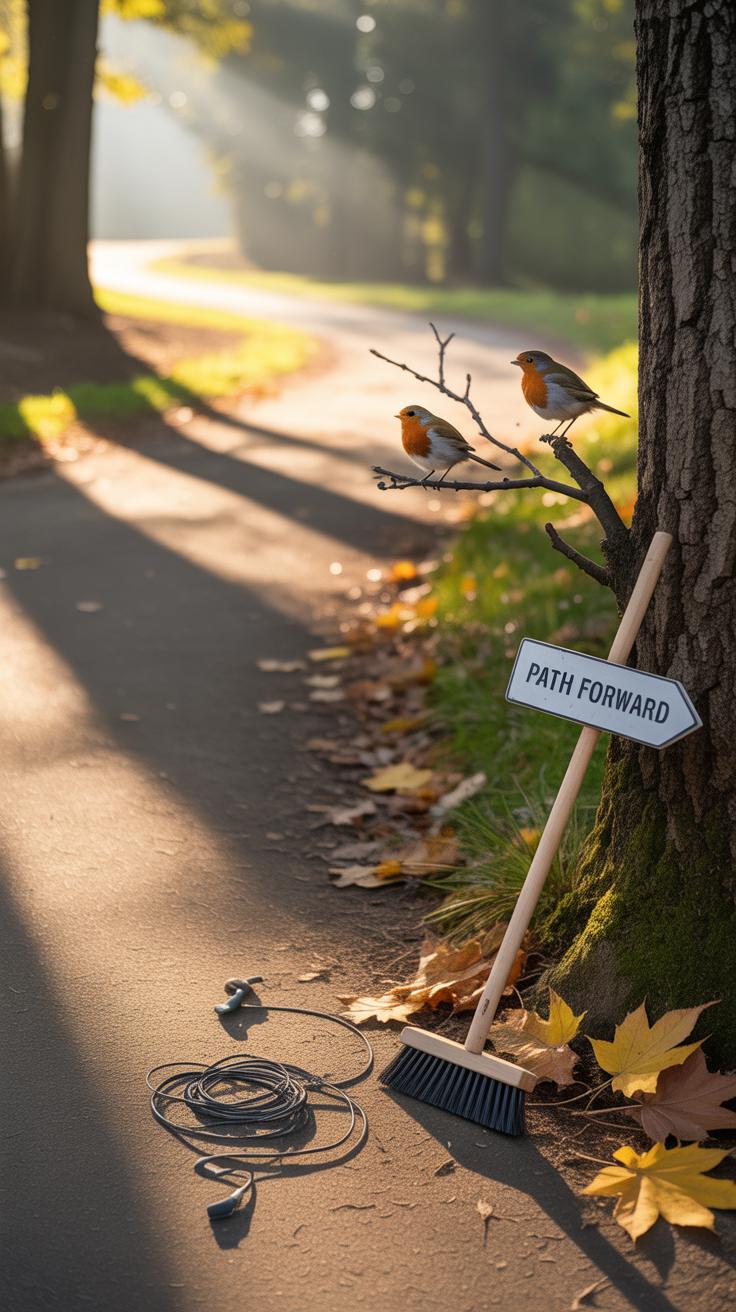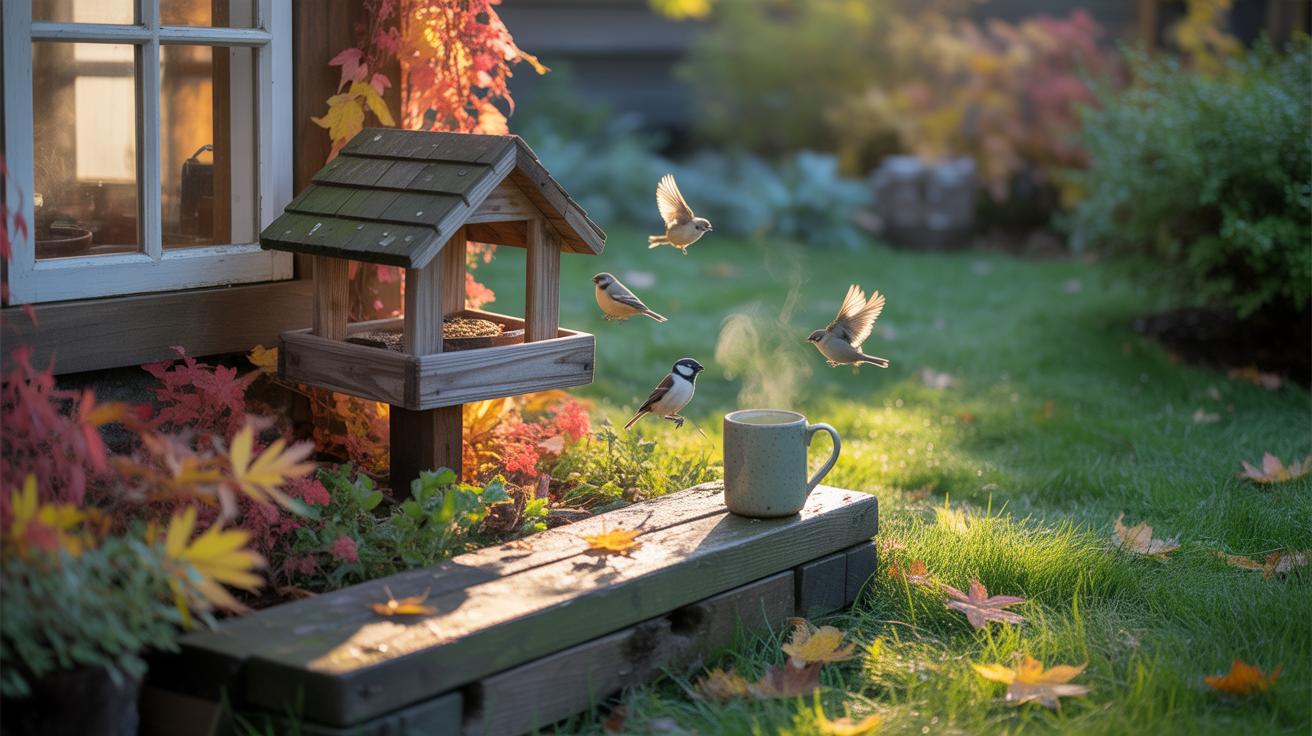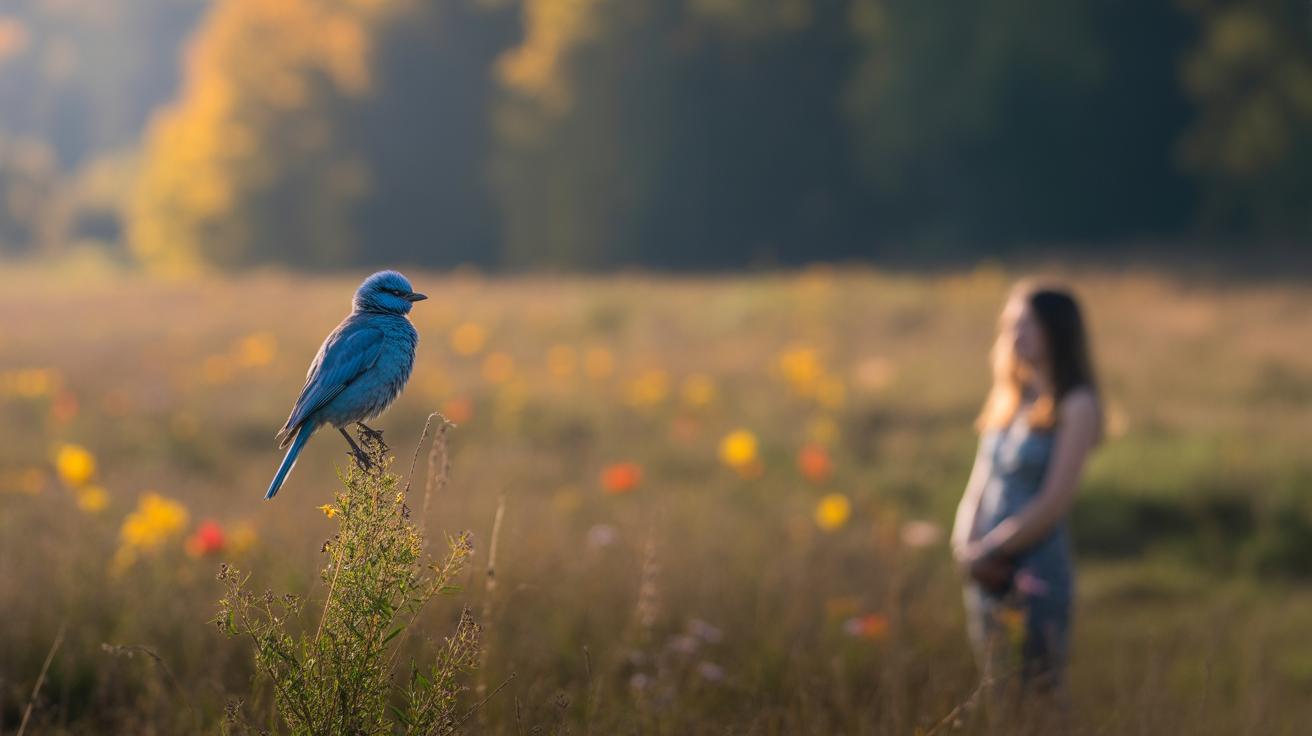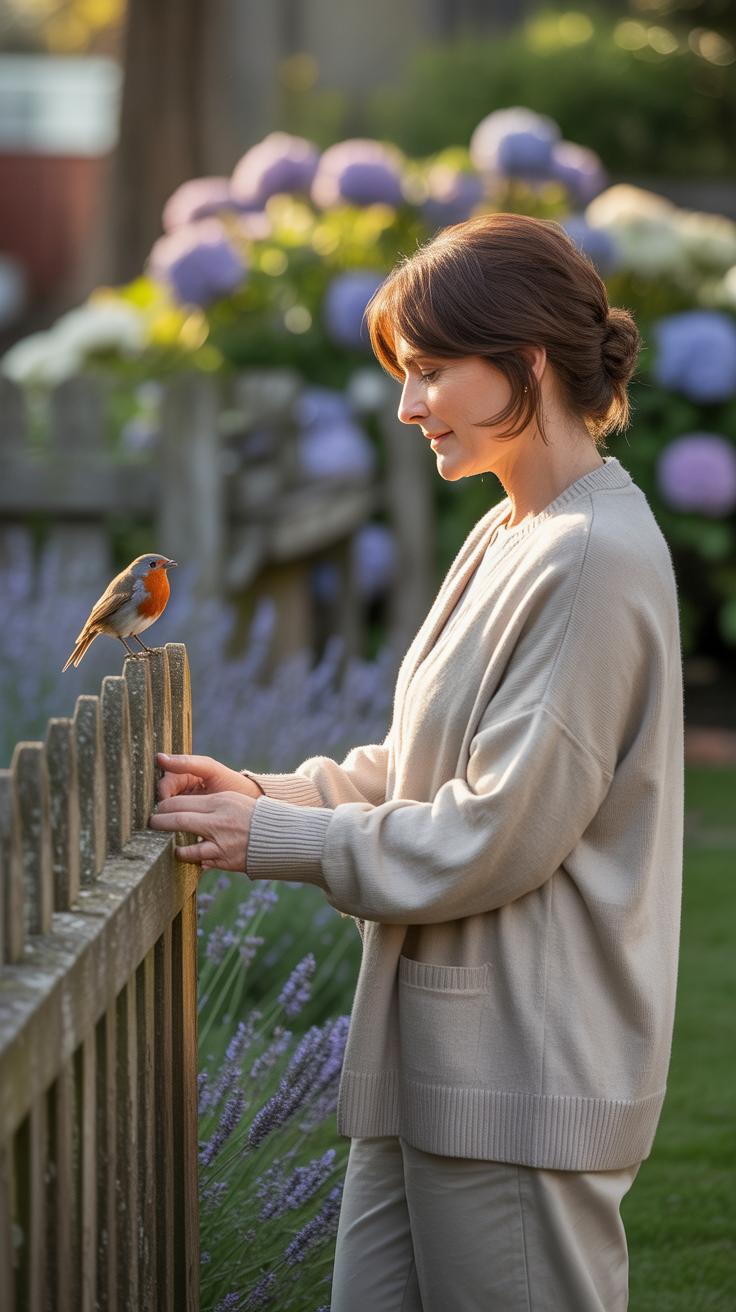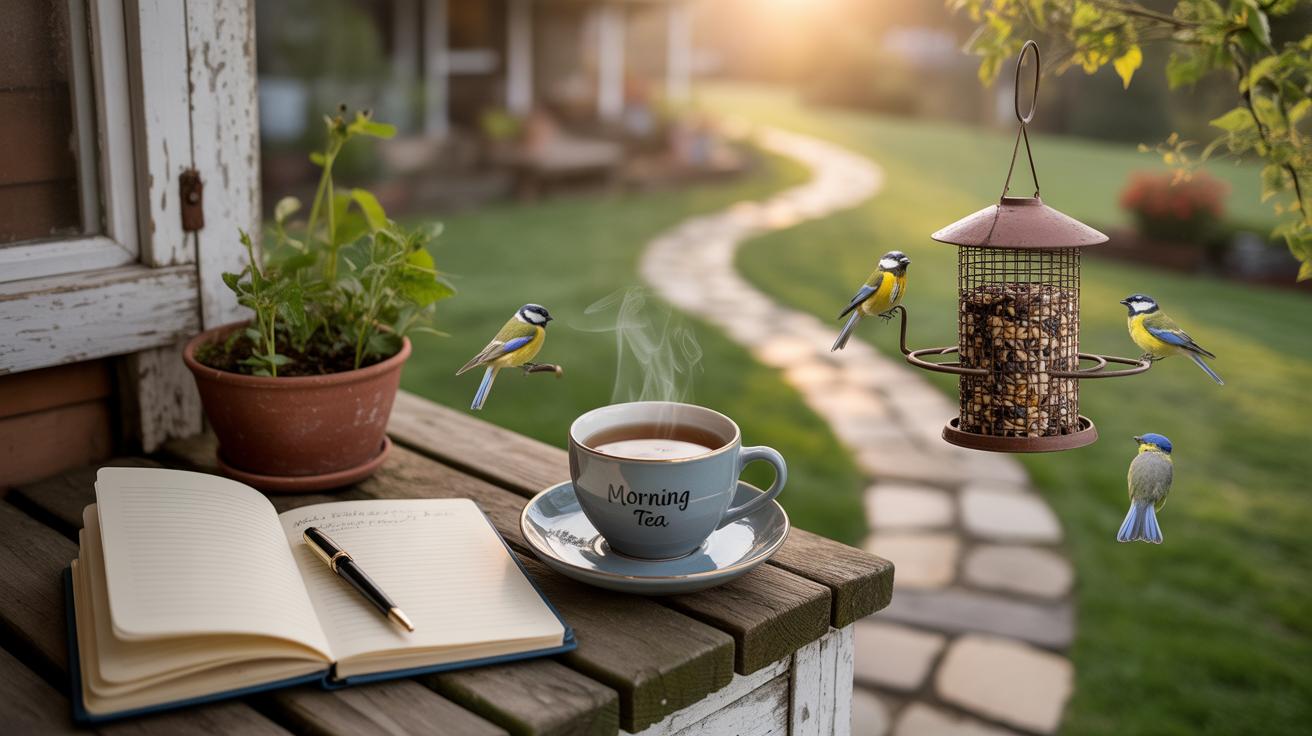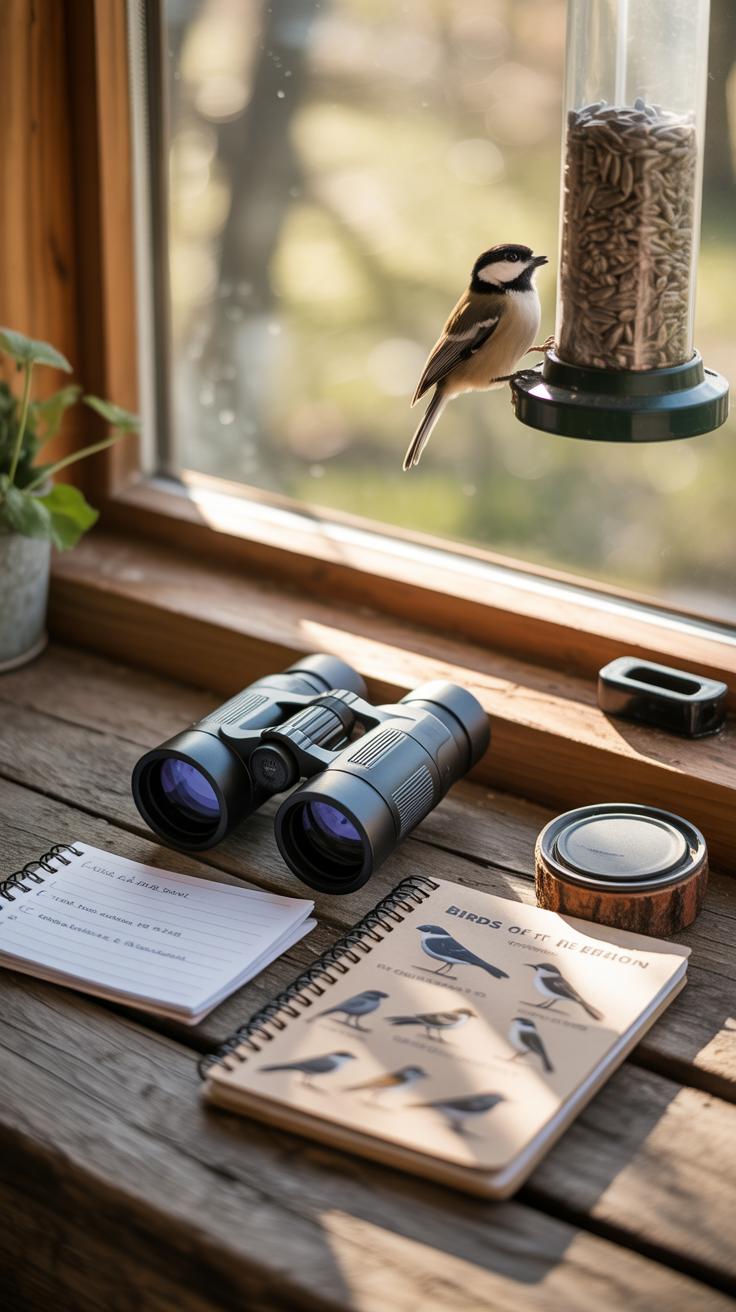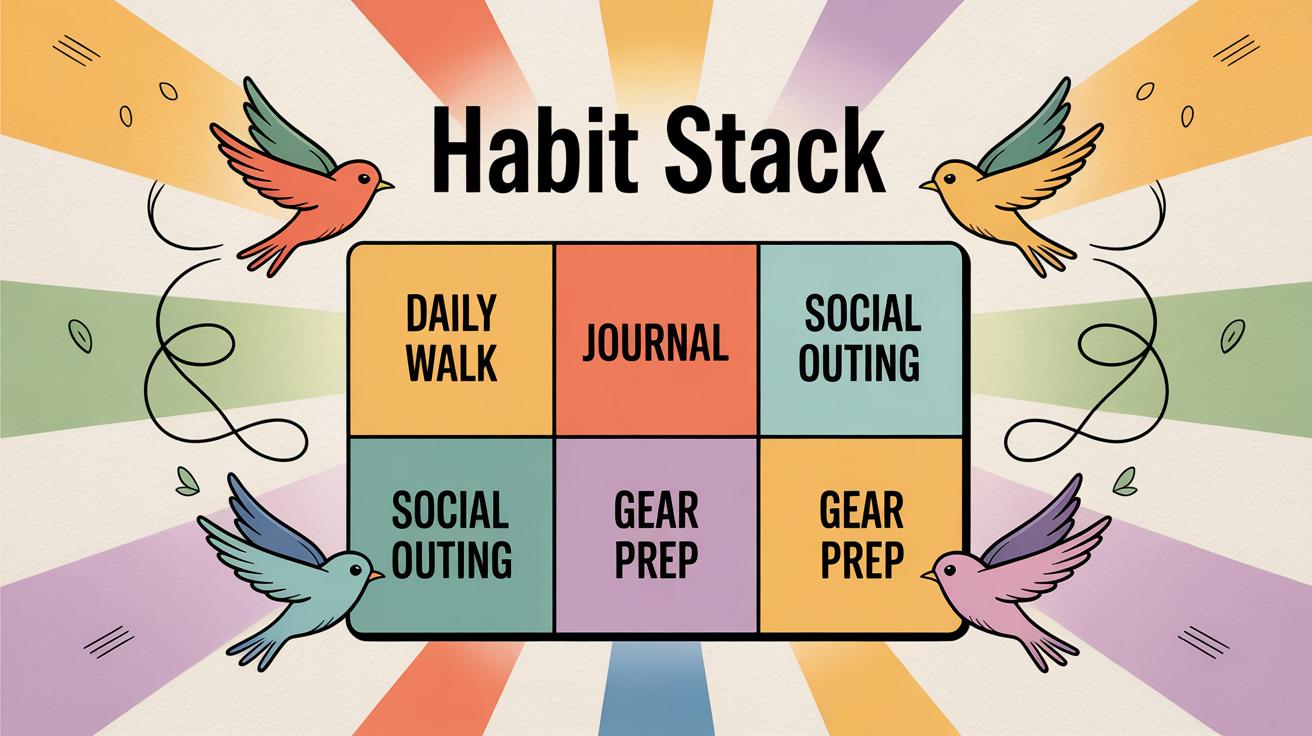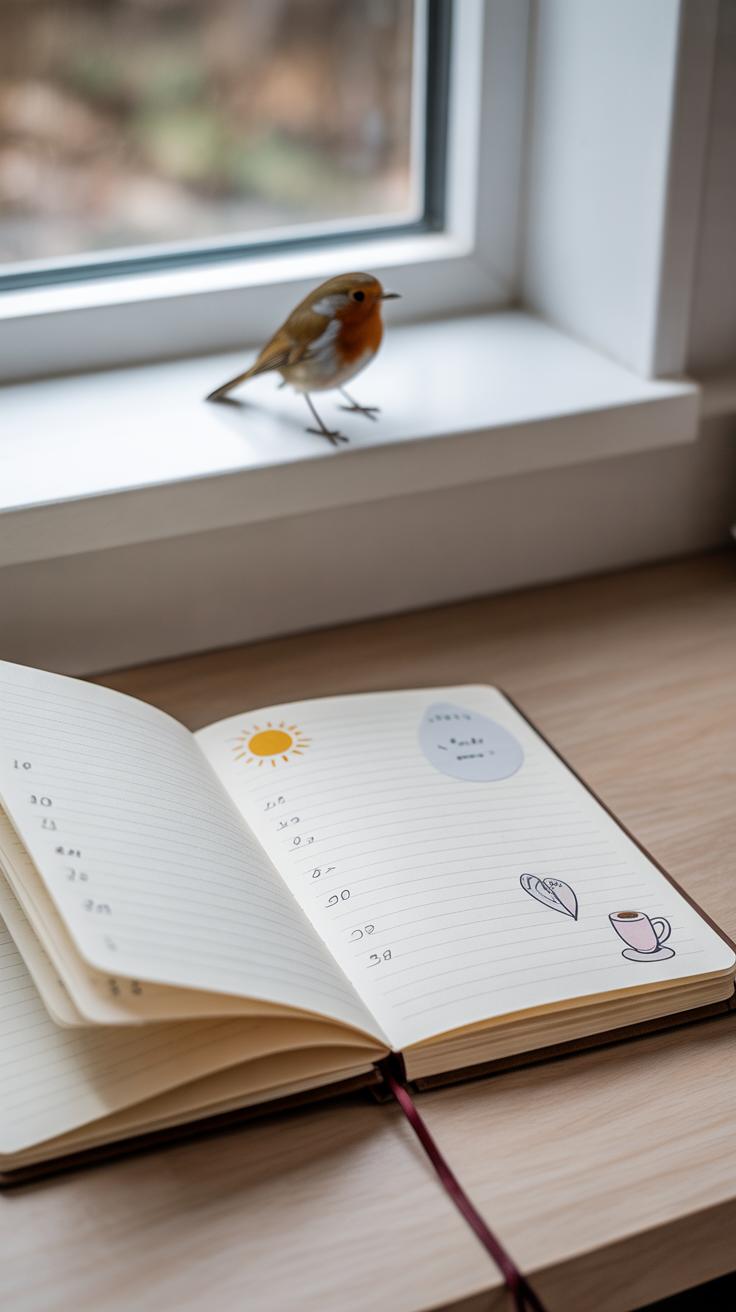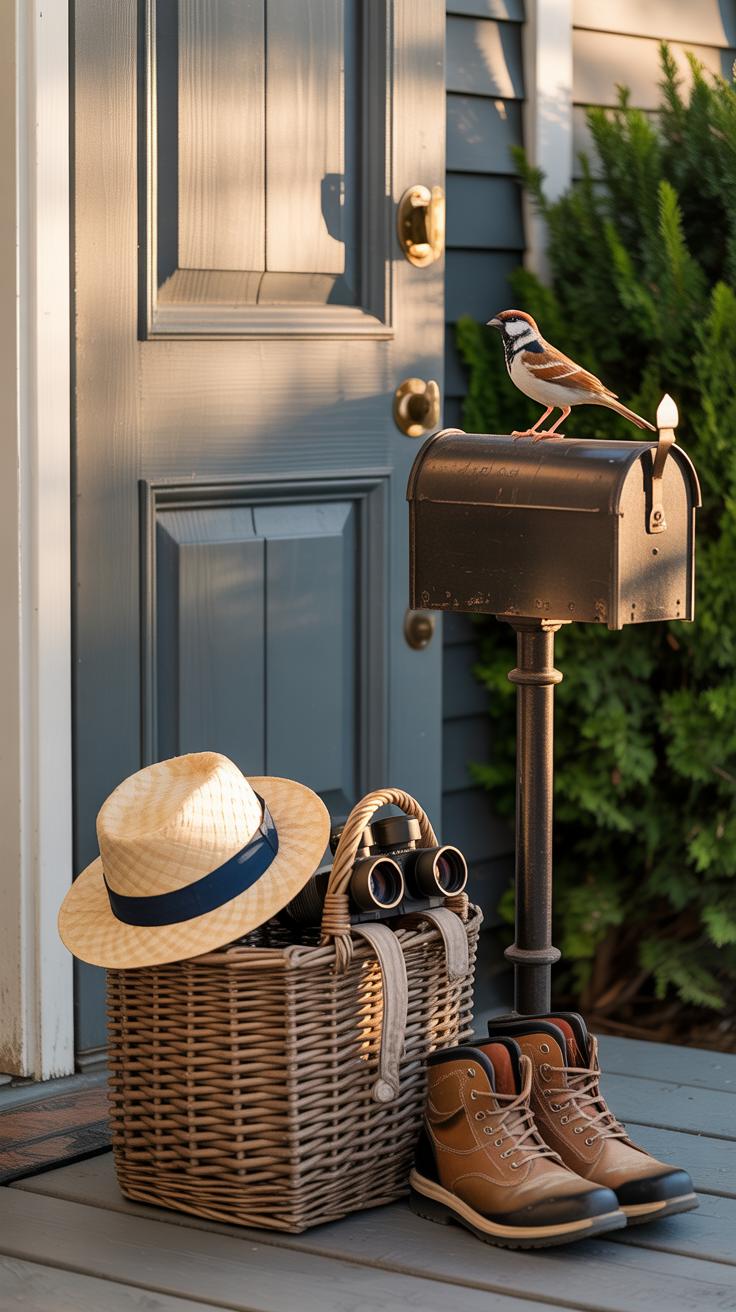Introduction
Mental health affects how you think, feel, and act each day. It helps you handle stress, connect with others, and make choices. Good mental health means you can enjoy life and work well. Many people struggle with mental health problems like anxiety and depression, which can make daily life hard.
Bird watching is a simple hobby that can help your mental health. Watching and listening to birds can make you feel calm and focused. This article will explore how mental health matters and how bird watching can help every day. You will learn why mental health is important and how spending time with birds can support your well-being.
Understanding Mental Health
What is Mental Health
Mental health is about how you think, feel, and act every day. It helps you handle stress, do your work or school tasks, and enjoy life’s little moments. You might think of it like your brain and emotions working together in a way that keeps you balanced. When your mental health is good, it’s easier to solve problems and get along with others. But it’s not just about being happy all the time. Sometimes, you might feel sad or worried, and that’s okay too. Mental health means you can bounce back from those feelings and keep going.
Why Mental Health is Important
Mental health matters because it affects almost everything you do. Imagine trying to pay attention in class when you’re feeling upset or worried—that can be really hard. Good mental health helps you stay calm during tough moments, like when you have a big test or a disagreement with a friend. It also helps you enjoy things like playing outside or spending time with family. Sometimes, it’s easy to forget just how much feeling safe and calm inside can change your whole day. I think it’s a bit like how a bird feels when it lands on a quiet branch—simple, but it makes a difference.
Common Mental Health Challenges
Mental health struggles show up in many different ways, but two of the most common are anxiety and depression. These can feel pretty overwhelming and sometimes hard to explain, even to yourself.
Anxiety and Depression
Think about anxiety as that uneasy feeling you get when something uncertain is looming—like waiting to hear back about a job or worrying about everyday things that don’t usually bother you. Your heart might race, your thoughts jump around, or you might avoid certain places or people just to feel safer.
Depression can feel like a heavy weight—like waking up and not having the energy to do things you once enjoyed. Maybe you find it hard to get out of bed, or things seem less interesting or meaningful. Simple tasks, like talking to a friend or cooking a meal, might suddenly feel like too much.
How Challenges Affect You
When anxiety or depression take hold, they change how you think and feel about yourself and your world. Thoughts might become tangled, focusing on worries or negative ideas. This can make decision-making harder or make you want to pull away from others.
These changes often make daily life more difficult. You might struggle with concentrating at work or school, or feel exhausted even after resting. Sometimes, it’s not clear why you feel this way, which can be frustrating and confusing. If you’ve ever felt like this, you know it can make routine tasks feel like a real challenge.
The Benefits of Nature for Mental Health
Why Nature Helps your Mind
Spending time outside, surrounded by trees, grass, and open skies, can do something quiet but powerful for your mind. When you breathe in fresh air, your body feels lighter, almost like a small reset. The sounds of nature—the rustle of leaves or birdsong—can gently pull your thoughts away from worries. I’ve noticed that even a few minutes near a park bench can soften the edge of a stressful day. It’s not magic, really, but natural sights and sounds seem to slow things down inside your head, making space for calm. Some days that calm lasts longer, other times it’s just a brief pause—but that pause matters. It makes you wonder why we don’t do it more often.
Activities to Enjoy Nature
Being outdoors doesn’t mean you need to run a marathon or hike up a mountain. Simple things can help you connect with nature and feel better, like:
- Taking a slow walk around your neighborhood or a nearby park.
- Finding a quiet spot to sit down and just listen—no phone, no distractions.
- Watching clouds drift by or noticing different tree shapes.
- Gardening or caring for a few plants, even on a balcony.
- Following a small trail and paying attention to birds, insects, or flowers.
These little activities don’t require special skills or much time. You might feel skeptical at first—like, can sitting down and watching really help? But giving it a try often reveals something surprising. Your mind unwinds when you step outside, and even just a bit of nature can make a difference.
Mental Health Matters
Mental health is more than just the absence of illness. It’s about how we handle stress, relate to others, and make choices. Many of us probably don’t pay enough attention to it until things get rough. Yet, it influences everything—work, relationships, even how we see ourselves.
Sometimes, mental health feels slippery, hard to pin down. You might wake up tired without a clear reason or find small problems suddenly overwhelming. These moments matter. They’re signals, not just mood swings. Taking mental health seriously means tuning in to these signals and acting on them, no matter how small the step.
You don’t have to go through it alone, either. Simple daily habits can make a difference, and that’s where hobbies come in. Engaging in something like watching birds isn’t just a pastime—it can support your well-being in quiet but meaningful ways. The calm focus needed to watch or listen to birds pulls your attention away from worry. It creates space to breathe and think.
Does it sound a bit too gentle or small to matter? Maybe. But sometimes, the small things add up in ways we don’t immediately see. And caring for your mental health is often about noticing those small helpful moments—the ones that push you closer to feeling grounded again.
How Bird Watching Supports Mental Health
Watching birds can actually help your mental health in some pretty clear ways. For one, it tends to reduce stress. Picture yourself sitting quietly, noticing a small bird flitting from branch to branch. That simple scene can slow your breathing and lower your heart rate. Your mind isn’t racing to the next worry—it’s just watching that bird. Even if your day feels busy or overwhelming, those moments offer a little mental break.
Bird watching also helps improve focus. When you try to spot different birds, you have to pay attention to small details—like colors, sounds, or movements. This encourages your brain to concentrate on the present, not replay past events or fret about what’s next. It’s an easy way to practice mindfulness without it feeling like a chore.
Plus, it’s flexible. You don’t need special skills or tools to start. Sometimes just listening to bird songs in your backyard can lift your mood. Other times, trying to identify a rare bird can sharpen your attention and bring a sense of accomplishment. That mix is pretty helpful for your mental well-being.
Calming Effects of Watching Birds
Watching birds can calm you down. Have you noticed how just looking at birds sometimes makes your chest feel less tight? Maybe it’s because their movements are gentle and natural. You don’t have to do anything except watch.
Imagine sitting by a window, seeing a robin hop around quietly. Your worries seem to fade, if only for a short time. The sounds birds make—chirps, whistles, or coos—can also be soothing. They break the silence in a natural way, which can make you feel less alone or anxious.
Even a minute or two of this can help you relax. It’s not about escaping reality, but about finding a small, peaceful moment in your day. Many people say that just watching birds gives them a brief pause from stress. I think that’s because it connects us to something simple and steady, even when life isn’t.
Improving Focus and Mindfulness
Bird watching requires you to be present. You can’t easily spot a bird if your mind is elsewhere, thinking about emails or errands. You have to watch the trees, listen for calls, and notice small details. This kind of attention trains your brain to focus more sharply.
When you watch birds, you’re practicing mindfulness without even realizing it. Mindfulness is about paying full attention to the present moment, not getting stuck in your thoughts. Spotting a bird and identifying it can pull you right into “now.”
People often find this calming, but also energizing, because it breaks the habit of worrying. You feel more connected with where you are. Even if just for a few minutes, bird watching can create a mental space where you experience focus and peace at the same time. If you get distracted, that’s okay—just try again. That simple practice can slowly build better mental habits over time.
Starting Bird Watching for Mental Health
Getting into bird watching doesn’t need to be complicated, especially when your goal is improving mental health. You don’t have to have fancy gear or deep knowledge right away. Just start small.
Here’s a simple way to begin:
- Pick a quiet spot like your backyard or a nearby park. Even city parks can surprise you with birds.
- Spend a few minutes sitting still and just look around. You might notice birds you hadn’t before.
- Try listening carefully—noticing bird songs and calls can make the experience richer, even if you can’t identify which bird it belongs to yet.
- If you’re curious, grab a basic pair of binoculars. They don’t have to be expensive. It’s surprising how much closer birds seem with a little magnification.
- Keep a small notebook or use a phone app to jot down the types of birds you spot or sounds you hear. It can be fun to track your observations over time.
Where can you do this? Think about your garden, a local park, nearby woods, or even the street trees outside your window. Places with some greenery attract birds—even if it’s just sparrows or pigeons. You don’t have to go far.
Some beginners feel a bit overwhelmed at first, wondering if they’re too slow to spot birds or if it’s okay not to know names right away. That’s fine. The point is to be present and curious, not perfect. Just try it for a few minutes a day. You might notice your mood shifts on those days, even if just slightly.
Bird Watching as a Mindful Practice
What is Mindfulness
Mindfulness means paying full attention to the present moment. It’s about noticing what’s happening around you and inside your mind without drifting off into thoughts about the past or future. When you practice mindfulness, you focus on what you’re sensing right now—sounds, sights, smells, feelings. It’s simpler than it sounds, but it can be surprisingly tricky. Sometimes your mind wanders—it’s human, really. Still, mindfulness gently brings you back to this one moment.
Using Bird Watching to Practice Mindfulness
Watching birds asks you to slow down and really observe. You need to look carefully, listen closely, maybe even sit quietly for a while as they move or sing. This keeps you focused on what’s happening right now, not on worries or to-do lists. For example, noticing the way a bird’s wing catches the light or hearing a song you’ve never heard before pulls your attention back to the present.
It’s not about achieving perfect focus but about returning your attention again and again. Bird watching invites you to pause and just be. When you do this, even just for a few minutes, it’s easier to let go of buzzing thoughts. You might find your mind feels clearer, or perhaps calmer. Or maybe, you simply feel a little more connected—to nature and yourself.
Bird Watching and Social Connections
Enjoying Bird Watching with Others
Bird watching might seem like a quiet, solitary hobby, but it often brings people together. When you watch birds with friends or family, it’s more than just spotting creatures in trees. You share moments of surprise and discovery, laughter when someone misidentifies a bird, or quiet awe at a rare sighting. These shared experiences create bonds.
Joining a bird watching group can introduce you to others who share your interest. Walking together through parks or nature trails gives you space to chat, learn from each other, and feel part of a community. Even simple activities like comparing binoculars or exchanging tips spark conversations and new friendships.
Talking about Birds to Connect
Sometimes, just talking about birds can open doors. Birds are a common topic that doesn’t feel heavy or confrontational, making it easier for people to connect. It might start with “Did you see that bright red cardinal?” and evolve into sharing stories or memories.
People often find it easier to share feelings when they’re talking about something outside themselves. Bird watching acts as a bridge. It encourages small talk that leads to deeper conversations. So, if you’re feeling a bit isolated, maybe chatting about a sunrise bird sighting can be a gentle way to reach out.
Tracking Your Progress and Enjoyment
Keeping a Bird Watching Journal
Writing down your bird watching experiences can do more than just help you remember which birds you spotted. It creates a personal record that you can revisit later, and that in itself often brings a quiet sense of satisfaction. Sometimes, you might find yourself smiling over an unusual sighting or a funny encounter with nature. Even brief notes about the weather, how you felt, or the sounds you heard can deepen your connection to the moment.
Journaling also encourages reflection. You might notice patterns: certain birds appearing during specific times, or how your patience grows over days spent sitting quietly. These observations, recorded in your own words, can remind you that progress isn’t only about ticking species off a list. It’s about the subtle changes in your mood, focus, and awareness too. Writing can sometimes turn a simple walk into a meaningful experience worth looking forward to again and again.
Using Lists and Photos
Keeping lists of birds you’ve seen does something surprisingly helpful—it sets small goals. Maybe today you focus on finding a new species or spotting a particular color or behavior. Checking off a bird you haven’t seen before can bring a little boost of accomplishment. When you’re feeling stuck or doubting, a glance at your list might remind you how much you’ve already discovered.
Photos carry another kind of reward. Capturing a bird in the moment feels like holding onto a piece of your day, even the ones that seemed quiet or uneventful at first. Later, scroll through your pictures and you might notice details you missed the first time, or recall a memory you’d forgotten. For some, arranging photos into albums or sharing them with friends keeps the joy going long after the walk ends.
Between journals, lists, and photos, your bird watching becomes more than just an activity. It’s a story unfolding, one you can witness and gently nudge forward, helping to keep your spirits up and motivation steady, especially on days when you might otherwise feel disconnected or low.
Making Bird Watching a Daily Habit
Bird watching every day can quietly become a steady source of calm and focus. When you make it part of your routine, it gently nudges you to pause and tune into the present moment. This can be surprisingly good for your mental health—offering a regular break from stress or wandering thoughts. It’s not just about spotting birds; it’s about creating a small ritual that invites mindfulness and curiosity, day after day.
Fitting bird watching into your daily life doesn’t need to be complicated. Maybe start with five minutes near a window during your morning coffee. Or take a short walk around your neighborhood, keeping an eye out for feathered visitors. These little moments can feel simple, almost too small to matter, but they accumulate in ways you might not immediately notice.
- Choose a regular time of day, even if it’s just a few minutes, to look and listen.
- Keep a pair of binoculars or a bird guide nearby for quick reference.
- Mix indoor and outdoor observation to keep things fresh.
Doing this daily can build a positive habit that supports mental well-being more than occasional outings. It turns bird watching from an event into a comforting presence in your life. Over time, you may find that this routine brings a sense of stability, even when other parts of life feel unpredictable. And isn’t that something worth trying?
Conclusions
Your mental health is a key part of living a good life. Taking care of it helps you manage stress and stay connected to others. Bird watching offers a special way to boost your mental health by encouraging you to spend time outside and notice nature. This gentle hobby can bring peace and joy to your day.
By understanding mental health and trying activities like bird watching, you can support your well-being daily. You can start small, like listening for bird songs or watching from your window. These simple steps can make a big difference in your mood and outlook. Take time for your mental health and enjoy the benefits bird watching can offer.



